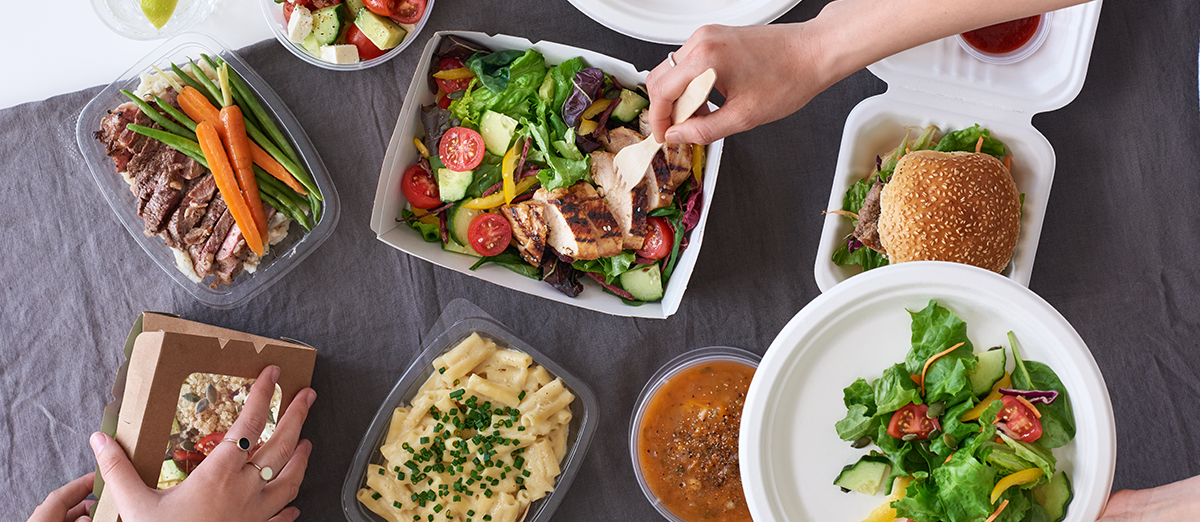
Know Your Audience: 5 Things to Research About A Neighborhood Before Opening A Restaurant
It’s very important to pay attention to demographics when opening a new restaurant.
Before you open up a new restaurant you’re going to want to scope out the neighborhood and get to know the people who (you hope) are about to become your customers. Sure, you could just visit the area and do some people watching, but there is a better way. Looking up demographic data is going to help you do some objective analytics and help you make important business decisions going forward.
Pay attention to these details when doing research!
1. Population

Obviously you’re going to want to look at the population of the area you’re looking at. But another important statistic is population density. To know your potential location’s population density, simply divide the population by the square mileage of the neighborhood. This will give you an average head count per square mile. Of course, the true population density will vary within that square mile, but this gives you a rough idea, which allows you to further estimate your best, and worst-case scenarios.
2. Tourism

Think about both Commercial Tourism & Local Tourism.
Commerical Tourism areas are held to a high throughput standard, so they can serve the high influx of customers. To maintain efficiency, franchise restaurants and fast casual establishments serve as the optimal choice. With well thought out procedures, and simplified preparation methods, you’ll be sure to keep your wait times to a minimum and turn your tables quickly. Due to the diversity of different languages from your visitors all over the world, having an“easy-to-order” system creates some relief in communication and increases confidence in ordering for your customers.
Local Tourism should not be underestimated. Locals like to support the small businesses that find a home in their community. If your concept fits within the “small business” criteria, and if you’re aiming at a more intimate location, stick to the local hot spots and be sure to play your part in maintaining the growth and development of the area. By contributing your fair share you’ll gain the respect of locals as an active member of the neighborhood. They’ll be sure to recommend you to visitors and next thing you know you’re a neighborhood staple.
3. Median Age vs. Target Age

This can make you or break you.
Depending on the style of your restaurant, targeting areas by age can allow you to distinguish consumer preferences and distinguish if the locals will be receptive to your concept. To make this short, give the college kids a good lunch deal.
4. Competition

You can group your potential competition into three categories. Once you have a breakdown of who you need to pay attention to, do your research.
- Direct Competitors (those with similar concepts and cuisines)
- Major Competitors (recognizable brands)
- Indirect Competitors (food & beverage establishments that differ in concept)
If you aim to have a “destination location” and overlook your competitors, you may want to consider the loss of what I call “spontaneous business” from consumers who visit the area for reasons other than your restaurant. Surrounding yourself with competition expands the opportunity of discovery. You’ll often save the day for your crowd by being second choice. If you deliver, next time you’ll be their first. #brandloyalty
5. Modes of Transportation

While city areas are a combination of transportation methods, suburban areas are often reliant on cars. If this is the case for you a parking lot would be necessary.
If the area is dominated by walkers and bikers, providing a bike rack is a great way to accommodate your eco-friendly guests.
Tip** Areas that are saturated with taxis have a busier night life!
What do you research when looking to open a new location? We want to know! Don’t forget to share in the comments below or on any of our social media accounts. Follow us on Facebook, Twitter, Instagram, and YouTube!
Got any other questions for PJP’s team of experts? We want to help! Just fill out the form below and a PJP expert will get back to you as soon as possible.






Write a Comment